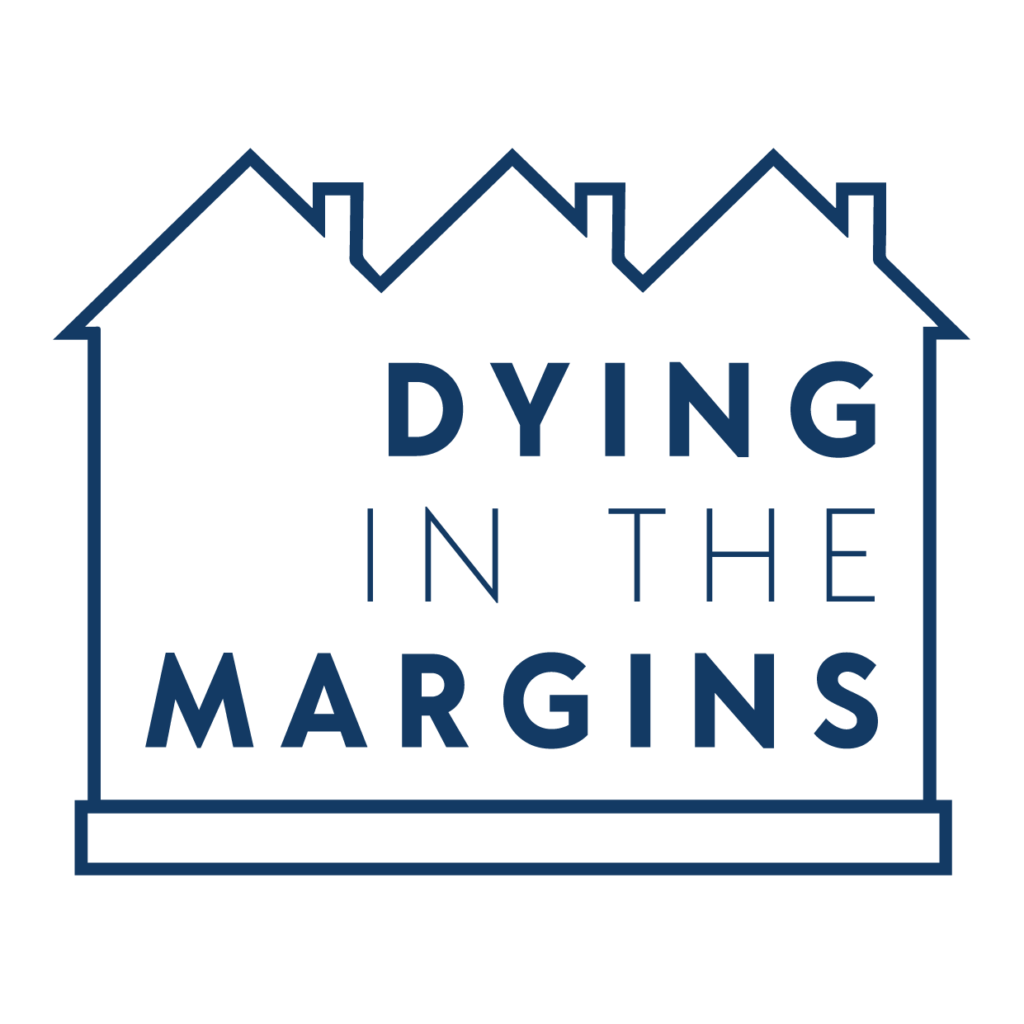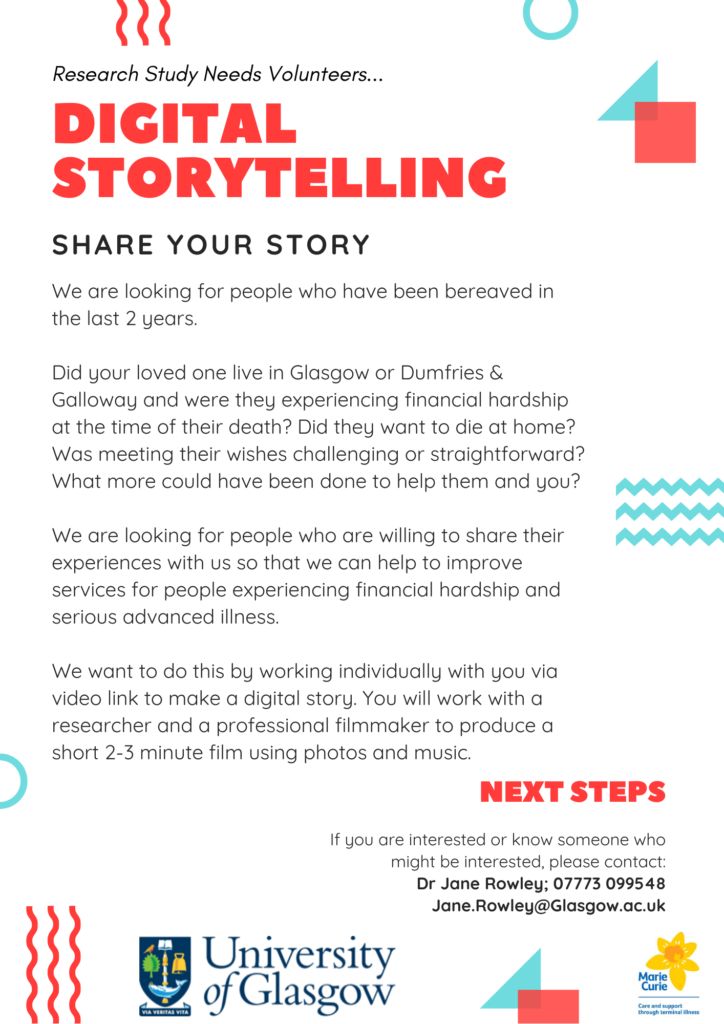
Our investigation into the barriers to dying at home for people living in poverty in the UK has become even more important considering the Covid-19 pandemic. This is because Covid-19 and the resulting lockdown has increased levels of poverty and worsened conditions for those already experiencing poverty. As of September 2020, we have begun recruitment for the digital storytelling component of our ESRC-funded study. The digital storytelling sessions are offered online so that the research can be done safely and ethically. If you or your organisation knows anyone who meets the participant inclusion criteria listed at the end of this blog post, we would love to hear from you.
While we are still living with this pandemic, we are yet to fully understand the impact of Covid-19. We can see that unemployment levels are increasing and the hardest hit will be people already living on low incomes. There are indications that those already struggling financially when the pandemic started are likely to be further affected. It is estimated that 65% of people employed prior to Covid-19 who were already in deep poverty have experienced job losses or reduced pay and hours. While Scotland has the lowest poverty rate in the United Kingdom, 1 in 5 adults and 1 in 4 children are still living in poverty. This means that increasing numbers of people are likely to experience difficulties in caring for others at the end of life and if experiencing serious advanced illness themselves, they may have less choice about where they die and the type of support they receive.
Our study will work with people living in the most deprived areas of Glasgow and Dumfries and Galloway, learning from their experiences at the end of life and uncovering the reasons for the inequity illustrated by the current pandemic.
The Dying in the Margins project was developed because we know that people from more socio-economically deprived areas in the UK are less likely to die at home and less likely to die in a hospice or to access specialist palliative care. Recent restrictions to manage the transmission of Covid-19 have increased home dying and deaths in ‘usual place of residence’ (usually a residential or nursing home), with contributory factors including a 50% reduction in people going to Accident and Emergency departments and a reluctance to go to hospital, even with symptoms of a heart attack. However, we do not know if these people were able to receive appropriate support at home or the circumstances of their deaths.
Early data on the impact of the pandemic has illustrated how people living in the margins, those struggling to make ends meet and living in deprived areas, are more at risk of contracting and dying from Covid-19 than those living in more affluent areas. Public Health Scotland (PHS) recently reported that inequalities in mortality have risen in both Covid and non- Covid related deaths. They report that since the start of the pandemic there have been more non-Covid-19 related ‘excess’ deaths than expected in any given year and these excess deaths have disproportionately affected people living in the most deprived areas of Scotland. The way that people living in deprivation have been impacted by Covid-19 is further evidence that health inequalities are socially determined, something we are exploring in our in-depth study.
In later phases of the project, we will be looking to work with people who are at the end of life using a participatory method called Photovoice. This is a process whereby each participant directs the researchers’ attention using photographs to document their everyday life and capture their worldview. Some participants will also work with a professional photographer to further document their experiences.
Can you help us?
We would like to meet with bereaved carers online and work with them to create short digital stories which share a part of their experience when supporting someone at the end of life and the experiences of those they cared for. We will work one-to-one with participants and we will be supported by a professional filmmaker. Each participant will decide the story they want to tell. Participants will read their story and rather than be in the film they will choose photographs, pictures, and music to illustrate it.
We want to use these digital stories to educate and inform clinical and palliative care specialists, social care professionals, volunteers, as well as individuals in our communities who may themselves be carers or will become a carer in the future. We will hold exhibitions across Scotland to share the digital stories and the photographs produced by others in the study, as soon as it becomes safe to do so.
We are looking for people who:
- have been bereaved for at least 3 months but no more than 2 years.
- is willing to talk to us about their relative or friend’s end of life experiences.
- was struggling to make ends meet financially
- their relative or friend lived in an area of high deprivation (the research team will help in defining these areas).
If you know of someone who might be interested in participating, please get in touch. We also have a poster available for circulating to relevant groups.
Email Jane.Rowley@glasgow.ac.uk.
Twitter: @Dying_Margins
Phone: 07773099548


